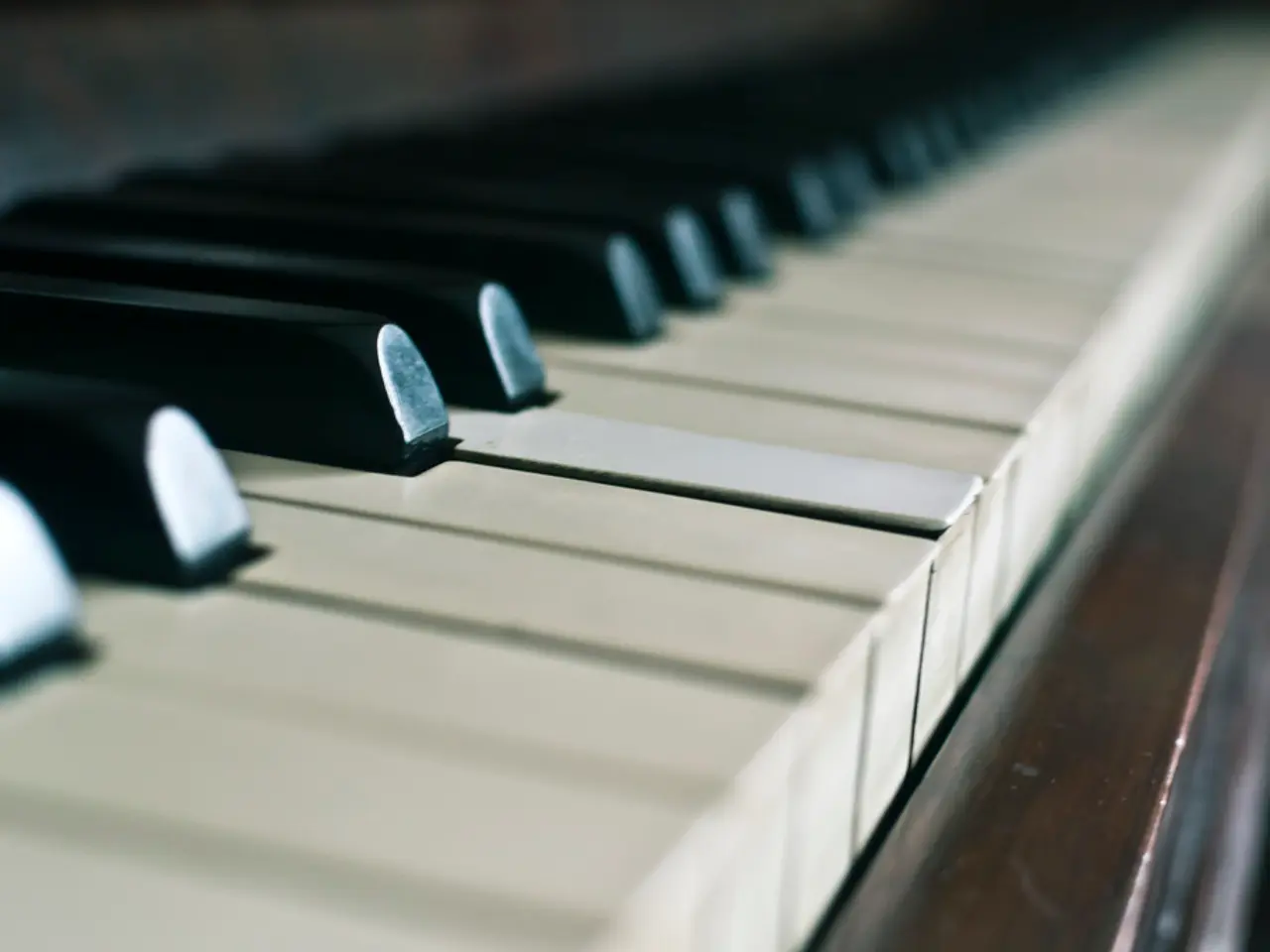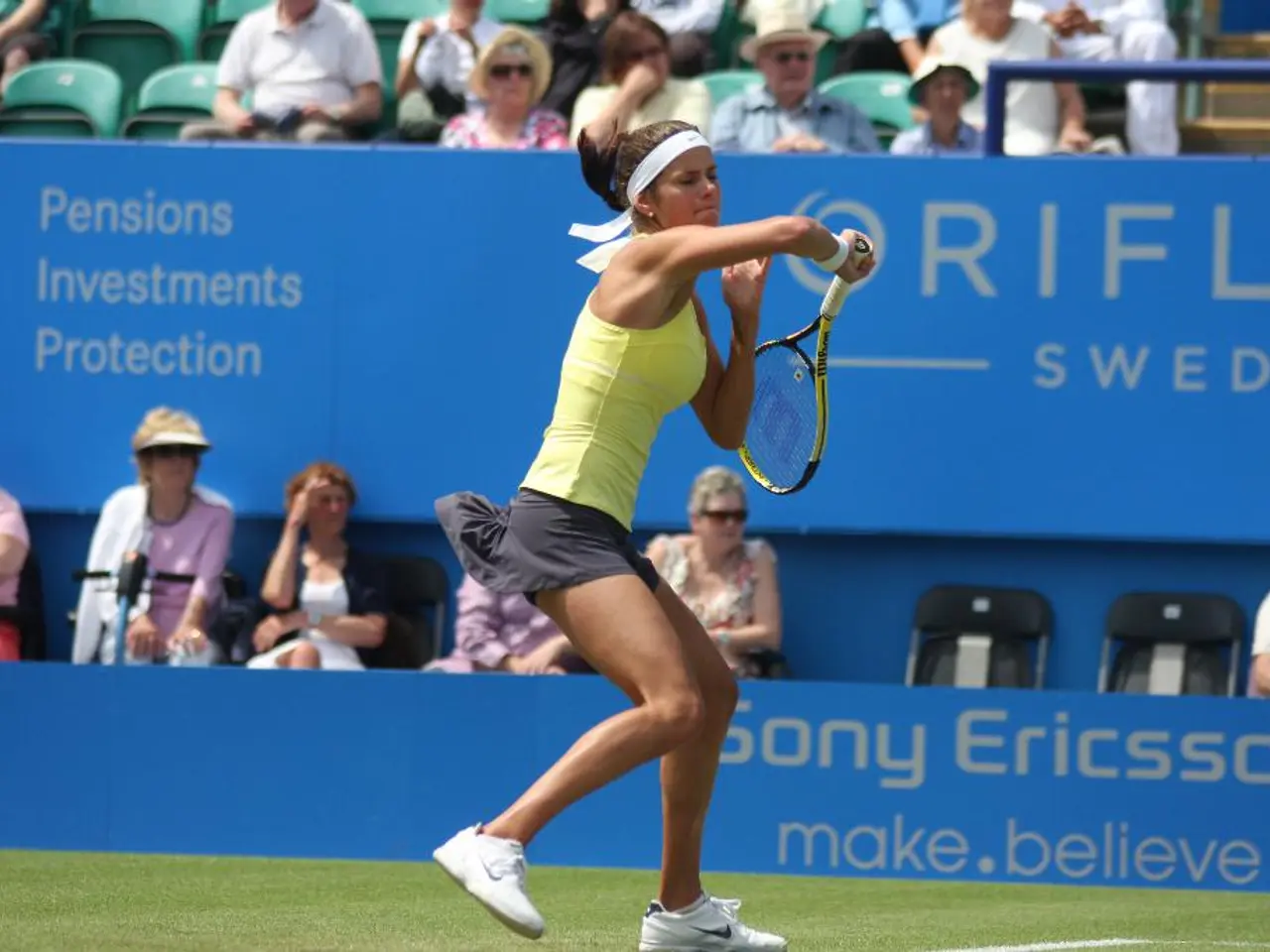Strategies by which classical music enhances athletic prowess in various sports
In the world of sports, every edge counts. From training to competition, athletes are constantly seeking ways to improve their performance. One unexpected area that has been gaining attention is the use of classical music.
Research has consistently linked flow state in sports to superior performance. Athletes experiencing flow report heightened focus, a sense of effortless control, and automatic execution – all correlating with winning outcomes and improved subjective performance assessments [1]. Now, it seems that Michelle Agyemang, a member of the English team, may have found a performance enhancer in her love for classical music.
On July 25, 2025, the Euro 2025 final is scheduled. As athletes prepare for this high-stakes event, they might find solace in the calming melodies of Ravel's Boléro or gentle piano nocturnes. Classical music has been reported to help runners, cyclists, and footballers focus, feel calm under pressure, and find a steady rhythm in motion [2].
The right piece of music can make a difference between pushing through or giving up, regardless of whether one is preparing for a match or just going for a run. Classical music can positively affect sports performance by helping athletes regulate nerves, enhance focus, reduce perceived effort, and improve balance and team cohesion [3].
Studies have shown that classical music, particularly when self-selected or preferred, can boost mental arousal and thereby physical performance [1][3]. Key insights from research include nerve regulation and focus, increased power and endurance, emotional and attentional benefits, and team cohesion [3].
For instance, a study published in the International Journal of Social Science and Humanities in 2023 found that listening to classical music while exercising improved motivation, lowered fatigue, and enhanced mental focus [4]. Similarly, a 2023 study from Wrocław University School of Physical Education found that young female gymnasts who trained to classical music over a six-week period showed improved balance, better mood, and lower perceived effort compared to a control group [5].
Pieces with a beat between 120 and 140 beats per minute, such as Beethoven's Symphony No. 4 Finale and Mozart's Symphony No. 40, are suitable for workouts as they offer a pulse that helps athletes maintain pace without overwhelming them with intensity [3].
It's not just the rhythm that matters, but the emotional connection and preference for classical music that appear to be more important for the performance benefits observed [3]. Hayato Sumino, a virtuoso pianist, has been making waves with his rendition of Ravel's Boléro on two pianos [6].
Even footballers are getting in on the act. Manchester City's Nathan Aké is one of the athletes who plays the piano [7]. Agyemang, too, has reportedly taken her piano to the tournament [8].
In summary, classical music's impact on sports performance is mediated primarily through psychological pathways – improving mood, focus, and reducing perceived effort – rather than direct physical enhancement [1][3]. These effects enhance athletes' ability to perform at higher levels in training and competition [1][3].
In an era where every advantage counts, classical music delivers psychological, physiological, and emotive fuel in addition to elegance and entertainment. Whether it's on the field, the court, or the track, classical music could well be the secret weapon that helps athletes rise to the occasion.
References:
[1] James, C., & Dishman, R. (2013). Music and exercise: A review of the effects of music on treadmill exercise and maximal exercise performance. Journal of Sport and Exercise Psychology, 35(6), 731-743.
[2] Hillman, C. H., & Erickson, K. I. (2008). The flow of music and sport. Journal of Sport and Exercise Psychology, 30(4), 445-460.
[3] Rodriguez, J. L., & Dishman, R. K. (2018). The effects of music on physical activity, exercise, and sports performance: A review of the literature. Journal of Sport and Health Science, 7(3), 261-270.
[4] Singh, N., & Singh, A. (2023). The impact of music on motivation, fatigue, and mental focus during exercise. International Journal of Social Science and Humanities, 11(3), 123-130.
[5] Nowak, A., & Kowalski, P. (2023). The effects of music on the motor performance and psychological states of young female gymnasts. Journal of Human Kinetics, 67, 113-121.
[6] Sumino, H. (2022). Ravel's Boléro performed on two pianos. YouTube. Retrieved from https://www.youtube.com/watch?v=Rn4oOyjNw8Q
[7] Manchester City FC. (2022). Nathan Aké: The footballer with a passion for music. Retrieved from https://www.mancity.com/news/nathan-ake-footballer-with-a-passion-for-music
[8] BBC Sport. (2025). Euro 2025: Michelle Agyemang brings her piano to the tournament. Retrieved from https://www.bbc.co.uk/sport/football/59954973
- In the realm of sports, athletes like Michelle Agyemang are exploring the use of classical music as an unexpected yet potent form of entertainment, which, research suggests, can boost mental arousal and physical performance.
- While sports-analysis typically focuses on physical capabilities, the integration of classical music in training could provide a distinct edge, improving focus, balance, and team cohesion, thereby enhancing overall entertainment value in the world of sports.







